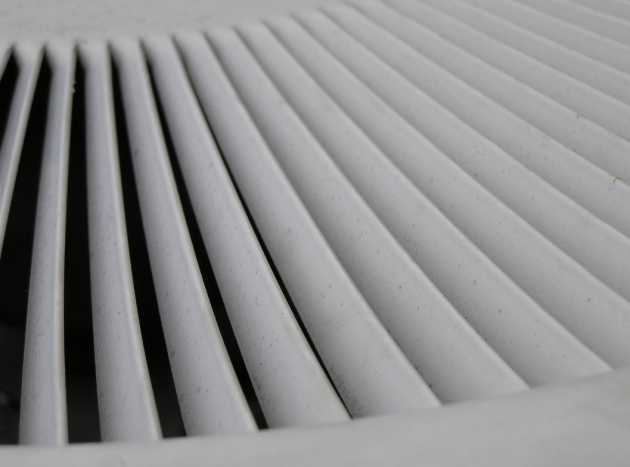The Covid-19 pandemic was and is a source of confusion, and there are many sources of information that seem to contradict each other. There were people making false claims about the effectiveness of air filtration systems and how they handle airborne viruses. In this article, we will take a closer look at indoor air quality (IAQ), the connection to Covid-19, and present the truth to help you make informed decisions.
Source Advice from Scientific Authorities
It is true that there is distrust amongst the public here and overseas about the Center for Disease Control (CDC) and the World Health Organization (WHO). When the Covid-19 pandemic began, these and other organizations were caught unawares. We saw knee jerk reactions that, in retrospect, seem silly and unnecessary. But, what we did learn is the importance of hygiene and that we should social distance to reduce the risks of infection. It’s easy to be an expert after the fact, and this was an evolving situation that was hard to track. Things are much better now; the CDC and the WHO regularly update their sites with solid information about Covid-19 and other health threats. So, if you’re worried, check out the official sites to get solid advice to protect you, your family, and your community.
Can Air Filters Remove Coronavirus?
There are many types of air filters and purification systems on the market. They can remove a wide variety of airborne pollutants from the air which will improve the IAQ. But, at this time, there is no air filtration system that can trap coronavirus from the air with any degree of reliability. Theoretically, it is possible, but viruses are incredibly small; they are usually less than 1 micron in size. Even the best air filters that we have at the moment cannot trap a particulate that is that small.
That being said, air filtration systems can capture a lot of common airborne pollutants that can harm your health. The efficacy of an air filter is measured with the Minimum Efficiency Reporting Values (MERVs), which is rated from 1-20. A MERV rating of 1 is the least efficient, and 20 is incredibly efficient at particulate removal. The highest MERV 20 air filters are only found in clinics, clean rooms, surgical rooms, and other exceptionally clean areas. But, there is no guarantee that even these air filters can catch a microscopic virus. The higher MERV ratings for homes, such as HEPA filters, can capture bacteria and even smoke particles.
This is encouraging because air filtration can improve your IAQ, but it won’t help with coronavirus and this may be disheartening. But, it’s important to understand that the most common vector of transmission is contact with an infected person or surface droplets. In both cases, an air filtration with any MERV rating will make no difference.
Understanding Air Filters
There are two common types of air filters used in homes and smaller businesses, they are:
The first and most common is the High-Efficiency Particulate Air (HEPA) filter. The HEPA filter is typically made with spun fiberglass filtration media mounted in a plastic frame. They use a similar process to the filters that you use to make coffee or the air filter in your vacuum cleaner.
The second air filter uses ultraviolet (UV) light to sanitize the air that’s circulated throughout your home. The UV light is on a wavelength that disrupts the DNA of microorganisms which prevents replication, and this sterilizes them. The primary health threat presented by microorganisms is their ability to replicate quickly. This technology was only found in hospitals in the last few years, and now it’s viable for home use.
What is Healthy Indoor Air?
A good air filtration system can improve the IAQ in your home, and this can improve the respiratory health for everyone living there. Every year, the WHO estimates that approximately 90% of the world’s population are breathing polluted air. Air pollution is a contributing cause to millions of deaths annually, and this outdoor air can follow people indoors. In our homes, we can control the environment to make the air cleaner than it is outdoors.
Are Air Filters the Only Option?
Air filters can improve the IAQ, but their primary function is to prevent contaminants from entering the HVAC equipment. If you check the air filter, you will see dust, dirt, pet hair, and other contaminants on the surface. The HVAC system needs a steady supply of air to run efficiently and to avoid overheating issues. If you can’t remember when the air filter was changed, it should be changed now and on a monthly basis thereafter.
Even if the air filter is clear, there may be dirt, bacteria, mold growth, pests, and other unhealthy contaminants lurking in your air duct system. These contaminants will be circulated in the air when the HVAC system is running, and this will degrade the IAQ. For this reason, we recommend air duct cleaning or a replacement if they are in poor shape.
Another common cause of degraded IAQ is synthetic freshener products that people use to improve the smell of their homes. But, these products may contain Volatile Organic Compounds (VOCs) and other harmful chemicals. These chemicals can be found in other air freshener products, such as scented candles, incense, and even laundry detergent. Avoid using these products, switch to greener products that use beeswax or soy, and the IAQ will improve.
Modern homes are designed to be very airtight to improve the thermal profile and energy efficiency properties. This is good for efficient heating and cooling, but it prevents fresh air from getting into the home naturally. Unless fresh air is introduced, there may be bad odors, moisture issues, and certain contaminants can build up in the home. So, open the windows at least once per day, and you will notice that the IAQ will improve.
If you want to improve the IAQ in your home, contact your local HVAC specialist today.

